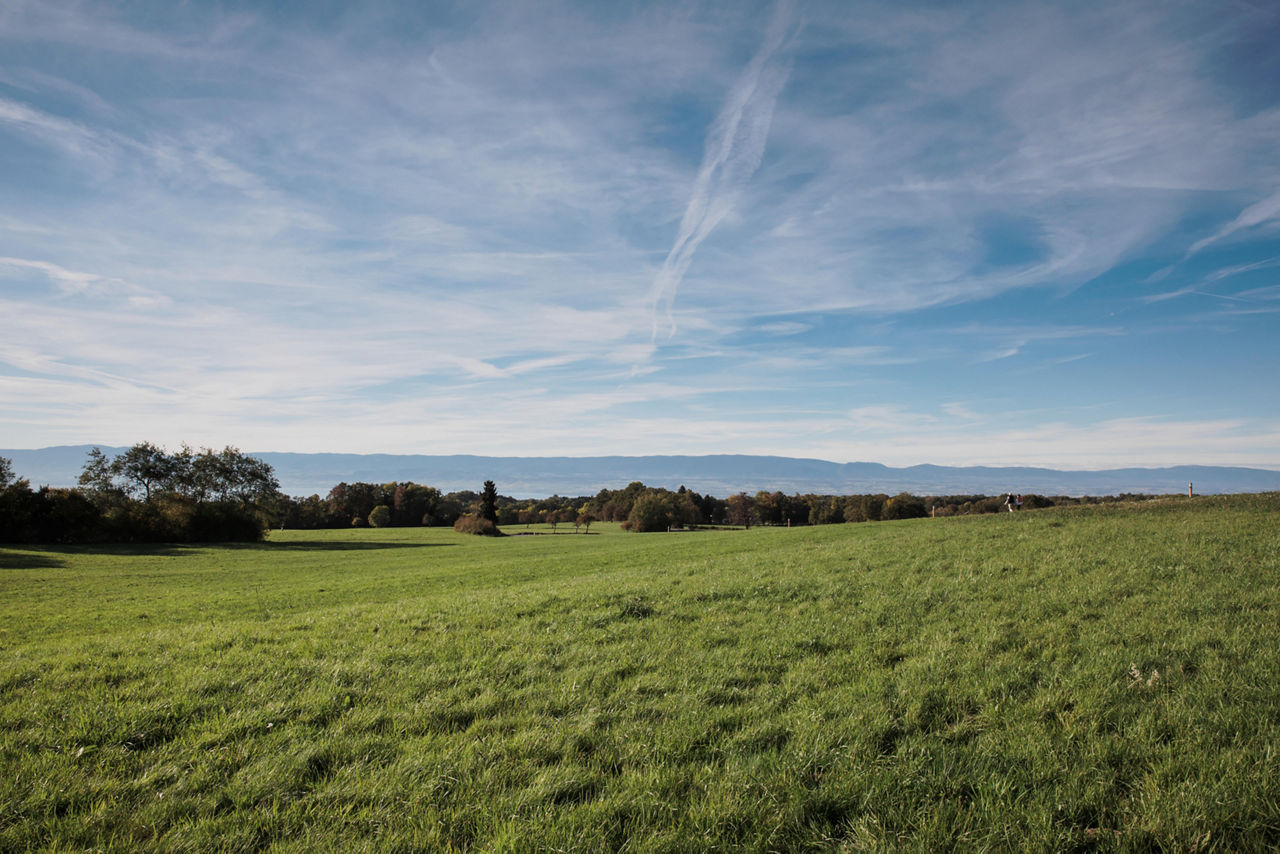At the end of the regenerative agriculture awareness day on September 21st, with the knowledge of the funds raised and the specifications shared with all of Danone's agricultural partners, a call for projects will be launched in France, led by the Danone Ecosystem Fund. Discover some of the projects in which Danone is already invested.

"By increasing the grazing area for our dairy cows, we are reducing our carbon footprint"
Anne-Sophie took over her parents' farm 10 years ago with her partner Yann. For Anne-Sophie and Yann, the future of their farm is a strong commitment to a positive agriculture for the planet. To reduce their carbon footprint and promote animal welfare, the partners want to double pasture areas for their cows and improve their quality with a rotating pasture. New grasslands that will also improve soil quality. Accompanied by Danone and the expert partners of the Livestock Institute, they were able to estimate the impact of their action plan: they aim for a 6.5% decrease in gross emissions and 11.5% in net emissions. The program Les 2 Pieds Sur Terre will be able to support them in financing the development and relocation of pastures for their cows: to make the paths to grasslands for cows, to install fences, to install water points in each plot and buy seeds for the grasslands.
"I aim for zero pesticides throughout the stages of cultivation"
Pierre Coisnon is hard at work to win the BeeFriendly label. BeeFriendly is a response to the challenge of protecting bees in France, where bad agricultural practices are one of the causes of their disappearance. It is also a proven solution for preserving biodiversity on farms. Blédina is committing to its farmers by accompanying them humanly and financially in obtaining this label. To achieve this, Pierre has already put several actions in place, including the construction of a dedicated space in which are planted flowerbands that allow bees to have resources to feed and develop.
To meet the strict charter of infant food, Pierre Coisnon is mobilizing for a healthy and sustainable agriculture. He makes every effort to limit the use of pesticides and water expenses. He also gives his time by working hand in hand with distributors on the reduction of chemicals through testing of bio-controlled products or prevention by sharing the observations of his colleagues with the Regional Chamber of Agriculture (insects, symptoms...) to set up information sheets on the risks of diseases and pests.
But the story does not end there, and Pierre still has many other ambitious projects such as the installation of photovoltaic panels on his farm or a biogas project in partnership with ADEME by 2020. With Blédina, Danone supports daily infant food agriculture, the strictest and most controlled in France, to guarantee healthy and tasty food for future generations.
"The methane produced by my livestock activity is captured and turned into valuable products such as natural fertilizer and biogas: it’s my contribution to the reduction of greenhouse gas emissions"
The development of industrial agriculture comes with an increased risk of nitrate pollution. 60% of surface land over the Evian spring’s watershed is used for agriculture, but mineral water has to meet very strict quality standards for purity, composition, stability and nitrate levels. Adapting farming practices to respond to these risks requires major investment, which threatens the livelihoods of family farmers who can’t afford such expenditure. With the support of the Danone Ecosystem Fund, Evian, the Communauté de Communes du Pays d’Evian and SICA Terragr’Eau Methanisation, the Terragr’eau project is building a biodigester to turn cattle manure and organic waste from the municipalities into biogas for Evian city and organic compost for fertilising local land. A dedicated cooperative of farmers manage the compost spreading operation, which will reduce fertiliser costs and support sustainable agricultural development.
This project fosters the sustainability of local family farming. By monitoring the quality of drinking water, it also avoids the use of water purification treatments for rural communities and promotes local development. Evian builds awareness of the importance of nitrate management and water quality and promote rural livelihoods in the Evian watershed. The project promotes sustainable farming practices in the region and contributes to reducing nitrates in agriculture, protecting the long-term quality of water.
